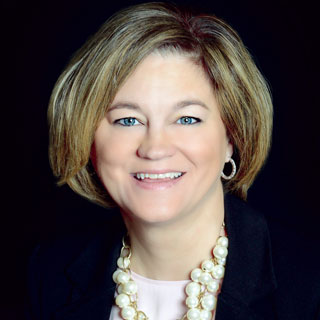
As we are looking for things to do at home, we’ve returned to the “good ol’ days” of jigsaw puzzles. Of course, my husband and son made fun of me as I spent afternoons working on them only to have the, celebrate like it’s a sporting event when they get a few consecutive pieces to connect!
There is some kind of strange phenomenon of experiencing frustration and satisfaction at the same time when working a jigsaw puzzle. The beauty of it is, at any time, you can walk away and come back to it whenever you want — if, of course, you don’t mind the card table set up and in the way until you decide to work on it again.
In long-term care, we might want to walk away from this nagging coronavirus puzzle after nine long months, but it isn’t an option. We’ve been given the four corner pieces, which is a great start. But the rest of the puzzle, that’s up to us to put together. Oh, and by the way, some pieces are missing, and others you’ll have to turn over to fit, but you won’t know which pieces those are. Sound like an impossible puzzle? Welcome to long-term care.
Some say contracting the virus is inevitable so we should just go on living our lives. If you work in our field, that isn’t an option. When so many others depend on us, we can never stop thinking about this national emergency. It’s in our every thought. Obsessed? Sure. As life goes on, we are in the middle of the never-ending puzzle. We fit the pieces here and there, but the puzzle is never completed. At the end of this, what price will our residents have paid? Our employees?
As the rest of the world may seemingly recover, we will be rebuilding for years. The burden, the toll the pandemic will have on us, is beyond comprehension. So, are we sleeping at night? Not a chance. Have we for the past nine months? Not even close.
I’ve seen so much about staying healthy during this time, instructions of sorts for leading and learning at a time when no one really has any answers. I read them, and they help. But in the middle of the night, I have a hard time not thinking about this puzzle and how we just can’t find all the pieces… or even know if all of the pieces exist.
This may sound like a long rant. Writing has become the healthiest version of therapy for me during all of this. For those of us in long-term care, it has never been about a job. We are called to this work. That is why, when there is an enemy at the door, we are giving our lives to protect those who have put their trust in us.
With the vaccine right around the corner, it may feel like a magic wand will finally solve this puzzle. It certainly will help, but the pieces won’t all fit just yet. The peculiar thing about this puzzle is that the way things fit and work together keeps changing, and they need to. Leadership, long-term impact on residents and their families, regulations, workforce and reimbursement — these pieces won’t and can’t stay the same.
The puzzle keeps calling out to us, even in the middle of the night.
Julie Thorson was the 2018 recipient of the LeadingAge Dr. Herbert Shore Outstanding Mentor of the Year award. Thorson is currently a coach for the Leading Age’s Larry Minnix Leadership Academy. Her “Living Leadership” blog was named the 2016 “Best New Department” Bronze Award winner by the American Society of Health Publication Editors. The president and CEO of Friendship Haven, a life plan community in Fort Dodge, IA, Thorson is a coach’s daughter at heart. A former part-time nursing home social worker, she is a licensed nursing home administrator and completed Leading Age’s Leadership Educator Program last summer.





